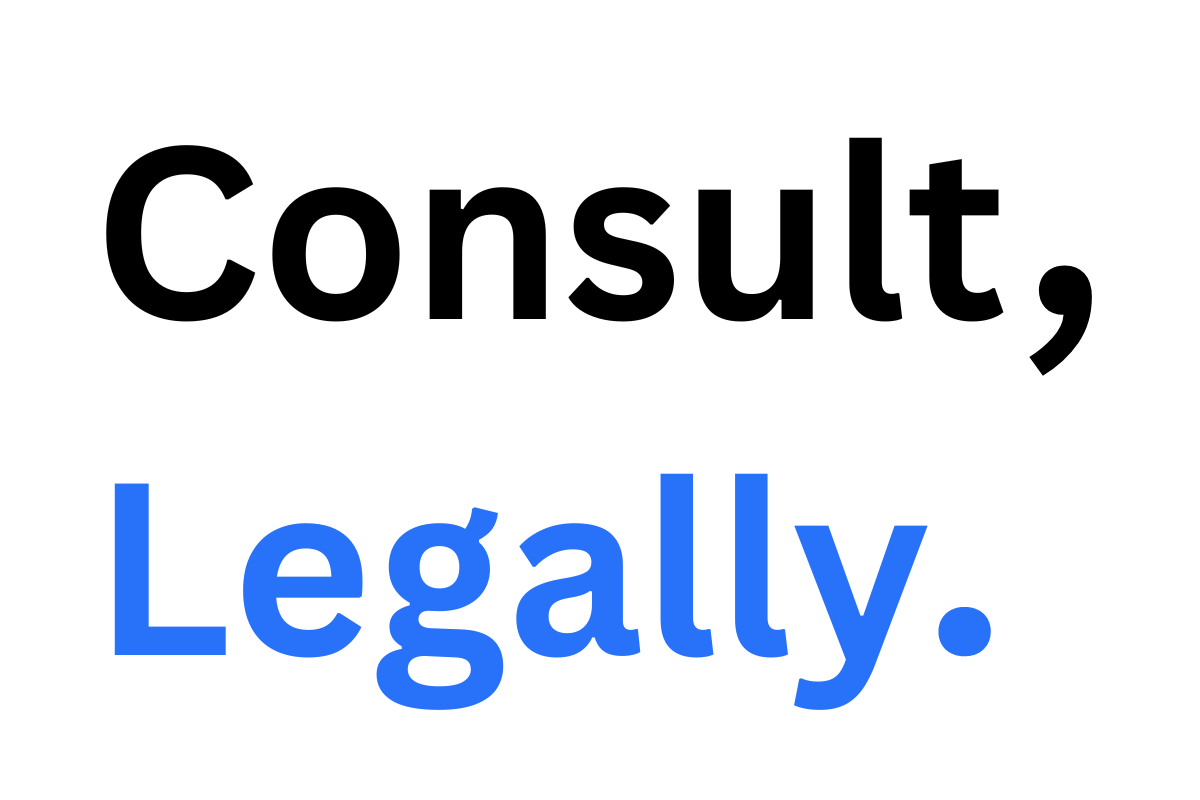Dealing with a lender can be stressful, especially when things go wrong. Maybe your loan was unfairly denied, you were subjected to hidden fees, or your lender violated your rights in some way. If you’re in a tough spot and are considering legal action, it can be difficult to know where to begin. Fortunately, it is possible to fight back and win. This guide will walk you through how to sue your lender, what to expect, and the steps you need to take to protect yourself and potentially recover your losses.
Understand Your Rights as a Borrower
Before you take legal action, it’s crucial to understand your rights. Lenders, whether they are banks, mortgage companies, or other financial institutions, must follow federal and state laws when doing business with you. If they violate these laws, you may have the right to sue them. Some common rights you have include:
- Fair Lending Practices: Under the Equal Credit Opportunity Act, lenders cannot discriminate against you based on your race, sex, age, or other protected factors.
- Truth in Lending Act (TILA): This law requires lenders to clearly disclose the terms of a loan, including interest rates, fees, and other costs, before you sign any agreement.
- Fair Debt Collection Practices Act (FDCPA): This act protects you from abusive debt collection practices. If a lender harasses you or uses deceptive practices to collect a debt, they could be in violation of the FDCPA.
Familiarizing yourself with these laws will give you a strong foundation for any legal actions you may need to take.
Identify the Wrongful Actions of the Lender
The next step is to figure out exactly what went wrong. You can’t sue your lender without a clear reason. Some common reasons people sue their lenders include:
- Predatory Lending: If your lender gave you a loan with unfair terms—like exorbitant interest rates or hidden fees—you might be a victim of predatory lending.
- Breach of Contract: If your lender failed to uphold the terms of your loan agreement, such as not renewing your loan or wrongly declaring you in default, you might have grounds to sue for breach of contract.
- Wrongful Foreclosure: If your home is at risk of foreclosure due to improper procedures, such as failure to provide adequate notice or violating state laws, you may be able to fight the foreclosure in court.
- Credit Reporting Errors: If your lender reported false information to the credit bureaus, which negatively impacted your credit score, you might have grounds to sue for damages.
- Loan Modification Violations: If your lender made promises about modifying your loan and then failed to follow through, you might have a claim against them.
The more clearly you can identify the issue, the stronger your case will be.
Collect Evidence of the Lender’s Wrongdoing
Before you take legal action, you need evidence to support your case. Without proof, it will be difficult to convince a court that the lender’s actions were wrong. Start by collecting the following:
- Loan Documents: Gather all paperwork related to the loan, including the original loan agreement, any amendments, and correspondence from the lender.
- Communication Logs: Keep a record of all communications with your lender, including emails, letters, and phone calls. Note the dates, times, and the names of the representatives you spoke to. If you receive letters from the lender, keep copies of them.
- Credit Reports: Obtain your credit report from all three major credit bureaus (Equifax, Experian, and TransUnion). If there are any errors or discrepancies caused by the lender’s actions, this could serve as important evidence.
- Payment History: If you are in a dispute over missed payments, gather records of payments you’ve made, including bank statements, receipts, or payment confirmation emails.
The more detailed and organized your evidence, the stronger your case will be.
Contact Your Lender to Resolve the Issue
Before jumping straight into a lawsuit, it’s a good idea to try to resolve the issue directly with your lender. Sometimes, a simple conversation can clear up the misunderstanding or allow for a resolution without needing to go to court. Here are some steps you can take:
- Write a Formal Complaint: Start by writing a formal complaint to your lender, explaining the issue in detail. Be clear about what you believe went wrong and what you expect them to do to make it right.
- Request a Resolution: In your complaint, ask for a specific resolution. For example, if you’re dealing with wrongful fees, request that they be refunded. If you believe you were misled during the loan process, ask for a review or adjustment to the loan terms.
- Consider Mediation: If you and the lender can’t come to an agreement, you might consider mediation. Mediation is a process where a neutral third party helps both sides reach a compromise. While not legally binding, it can be a cost-effective way to resolve a dispute without going to court.
Keep in mind that your lender may not be willing to resolve the issue quickly or fairly. If that happens, you will need to take the next step.
File a Complaint with Regulatory Agencies
If you are unable to resolve the issue directly with your lender, you can file a complaint with regulatory agencies. These organizations can investigate your complaint and, in some cases, take action on your behalf. Some agencies to consider include:
- Consumer Financial Protection Bureau (CFPB): The CFPB accepts complaints about mortgages, credit cards, and other consumer loans. They can investigate and sometimes mediate between you and the lender.
- Federal Trade Commission (FTC): The FTC handles complaints about deceptive lending practices, like predatory lending or credit reporting errors.
- State Attorney General: Your state attorney general’s office may have a consumer protection division that handles complaints about lenders. They can offer guidance and may take legal action if your lender violated state laws.
Filing a complaint with these agencies is not a guarantee that the issue will be resolved, but it’s an important step in showing that you’ve tried to resolve the situation before taking legal action.
Consult with an Attorney
At this point, you should consult with a lawyer who specializes in lending or consumer protection law. A lawyer can review your case, determine whether you have a valid legal claim, and advise you on the best course of action. A good attorney will help you navigate the complex legal landscape and increase your chances of winning the case.
When looking for a lawyer, be sure to:
- Choose Someone Experienced: Make sure the attorney specializes in lender liability, consumer law, or mortgage disputes. They will have the necessary expertise to handle your case.
- Ask About Their Success Rate: Don’t hesitate to ask the lawyer about their past success in cases similar to yours.
- Review Fees: Some lawyers work on a contingency basis, meaning they only get paid if you win your case. Others charge hourly rates, so make sure you understand their fee structure before proceeding.
File a Lawsuit Against the Lender
If all else fails and your lender refuses to settle the matter, filing a lawsuit may be your next step. Your lawyer will help you draft a formal complaint and file it with the appropriate court. You will also need to serve the lender with a copy of the lawsuit.
The process of filing a lawsuit can take time and can be expensive. However, it’s often necessary to hold lenders accountable for their actions. Be prepared for a lengthy legal battle, and make sure you have a lawyer who will advocate for your best interests.
Prepare for Court and Present Your Case
If your case goes to court, you will need to present your evidence and make your argument in front of a judge. Your attorney will guide you through this process, helping you organize your evidence and prepare for questions from the opposing side.
Key things to remember when preparing for court:
- Stay Organized: Have all your documents, records, and evidence neatly organized for easy reference.
- Be Clear and Concise: When explaining your case, stick to the facts and avoid emotional language. Focus on how the lender’s actions violated your rights or caused you harm.
- Remain Professional: It’s important to stay calm and professional throughout the proceedings. Getting angry or upset can hurt your credibility.
What to Expect After the Lawsuit
If you win your lawsuit, you may be awarded compensation for your damages, such as the return of fees, a reduction in your loan balance, or other remedies. In some cases, the court may order the lender to pay your legal fees as well.
If you lose, you may be required to pay some of the lender’s legal fees, depending on the circumstances. However, don’t be discouraged by the possibility of losing. With the right evidence and legal counsel, you have a strong chance of success.
Conclusion
Suing a lender is a big decision and can be a complex process, but it is possible to win. By understanding your rights, gathering strong evidence, and working with an experienced attorney, you can take steps to hold your lender accountable for their actions. Whether you’re dealing with wrongful fees, fraud, or other legal violations, don’t hesitate to seek justice and fight for your rights. With persistence and the right legal guidance, you can sue your lender and come out victorious.

